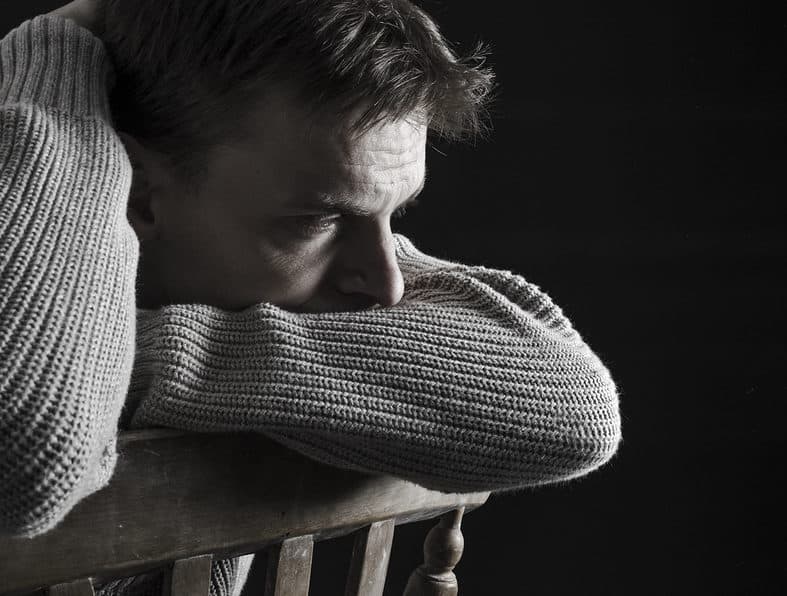Deep, overwhelming sadness or hopelessness is normal when experiencing any type of loss. Moving on from your old way of life is no different. In part four of our five-part blog series, we’ll confront depression, as well as share some coping techniques to help you on your road to recovery.
Depression During Addiction Recovery is Normal
For anyone who has ever lost something—be it a special person, cherished item, or, in this case, a familiar way of living—the grieving process can bring with it an overwhelming sense of sadness. In many ways, this feeling can be life-changing. It can alter the way we view the world, the way we communicate with others and our ability to enjoy life.
People struggling with substance abuse often rely on alcohol and other drugs as a source of happiness or as a means to soothe themselves from discomfort. Once you are abstinent for a while, you will likely discover that your substance dependency was more harmful than beneficial. This may cause you to feel like things will never be the same or good again. Or, you may find yourself withdrawing from your friends and family. This is precisely why depression is such a difficult emotion to deal with during the recovery process.
Depression Can Be More Than Sadness
Depression, if it meets the required criteria, can be a clinically diagnosed mental health issue. Millions of Americans are estimated to suffer from clinical depression every single day. And while overwhelming sadness is often used synonymously with depression, it’s important to understand the difference between sadness, grief and loss, substance-induced depression and clinical depression.
According to The Mayo Clinic, clinical depression is characterized by the nearly constant presence of at least five or more specific symptoms over a two-week period.
These symptoms may include the following:
- Depressed mood, such as feeling sad, empty or tearful
- Significantly reduced interest or feeling no pleasure in all or most activities
- Significant weight loss when not dieting, weight gain, or decrease or increase in appetite
- Insomnia or increased desire to sleep
- Either restlessness or slowed behavior that can be observed by others
- Fatigue or loss of energy
- Feelings of worthlessness, or excessive or inappropriate guilt
- Trouble making decisions, or difficulty thinking or concentrating
- Recurrent thoughts of death or suicide, or a suicide attempt
Because substance abuse often affects the center of the brain that helps you experience emotions, it makes sense that there may be a period of instability as your brain corrects itself from constant chemical induction. But, if you feel like you’re experiencing more than sadness, or if you were previously treated for depression prior to substance use, you might be wondering can alcohol cause panic attacks. It’s essential to talk to a medical professional to get the resources you need to manage your condition.
Why Substance Abuse Makes Depression Worse
We talked before about substance abuse numbing your ability to experience anger—and the same holds true for depression. In fact, you may have become addicted to alcohol, methamphetamine, cocaine, marijuana or other chemicals for exactly this reason—you saw them as an escape, a reprieve, from your pre-existing struggle with depression.
But when you attempt to temper, soothe or medicate depression with drugs or alcohol, you also impact your ability to deal with depression naturally. However, once you’re able to stop your substance use, you can learn to use heathier, more positive coping strategies.
Talking Your Way Through Depression
To ensure you’re coping with depression effectively without seeking the refuge of an addictive substance, consider making genuine connections with others to decrease feelings of loneliness, depression, or emptiness. Whether you’re working through depression or seeking ecstasy addiction treatment, this support can come from a medical professional or a trusted friend. It can take place privately on a therapist’s couch or in a group setting.
Below are two common forms of therapy that many people find helpful, though there are a variety of other therapies that can help decrease depression with increasing your sense of fulfillment, satisfaction, purpose and confidence.
- Cognitive Behavioral Therapy: Helps you develop personal coping strategies that can change unhelpful patterns in your thoughts, beliefs attitudes, behaviors and emotional regulation
- Group Therapy: Helps you find comfort in meaningful connections with your peers, including those who may also struggle with drug or alcohol dependency
We Are Here to Help
Remember, depression is a feeling that almost everyone goes through at one time or another, especially after experiencing loss. But, if you feel like your overwhelming sense of sadness is too great to bear, or if you fear you may relapse into using drugs or alcohol as a way to deal with your depression, overcoming fear and asking for help for alcohol addiction is crucial. Techniques such as motivational interviewing can help you explore your feelings and find the motivation to make positive changes. Our addiction treatment center is here for you, and we can offer more advice for coping with depression or any of the other stages of grieving, helping you on your personal road to recovery.
When you’re ready to start, The Raleigh House is ready to help. Call us today.

